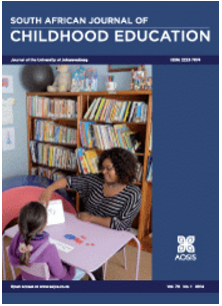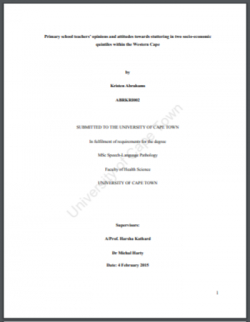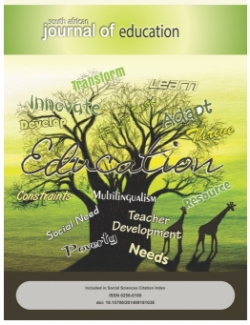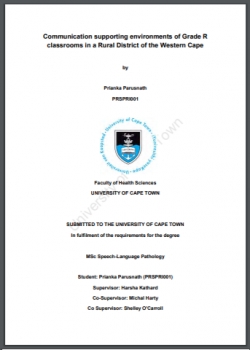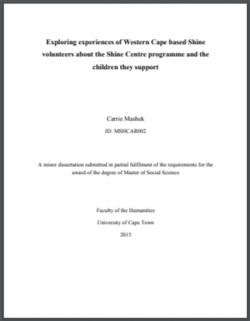Teaching literacy and language in a functioning Western Cape quintile one school : a grade one case study
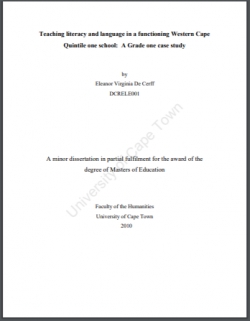
Type
Thesis
Authors
Category
ECCE, Foundation
[ Browse Items ]
Publication Year
2010
Publisher
University of Cape Town, School of Education, Cape Town, South Africa
URL
[ private ]
Pages
114 p.
Subject
Early childhood education, Primary education, Foundation Phase, Learners, Pedagogy, Reading, Literacy, Language, Challenges, Teachers, Teaching, South Africa
Tags
Abstract
The Progress in International Reading Literacy Study (PIRLS) provides compelling evidence that many learners fail to achieve at the required grade level in South African primary schools. Although there are various factors that might contribute to this, the teaching and classroom practices of the teacher must be regarded as a highly significant factor in learners‟ achievement. This dissertation examines the literacy and language pedagogy of a South African Grade one teacher, in a Quintile one school with a history of relatively good performance on the Grade three provincial systemic assessments. The study asks the question: How does a Grade one teacher of learners who are not proficient in the language of learning and teaching (LoLT), English, teach literacy in the first term in a high performing Quintile 1 school? I conducted a qualitative case study observing one Grade one teacher’s teaching practices over a period of five weeks. I draw on a sociocultural approach to literacy as contextualised social practice, the emergent literacy paradigm, as well as whole language and phonics approaches to literacy pedagogy to make sense of the teacher’s observed practices and discourse. The findings show that the teacher conceptualises reading and writing as separate skills which are taught through separate and distinct practices. While reading is approached as a word by word process with a focus on word recognition and the neglect of comprehension, writing is focused on the accurate copying of words and punctuation with very little emphasis on the construction of meaning. In contrast to the whole language approach where learners read and write for meaning, a Phonics approach is most dominant in this classroom. The teacher’s practices further contrast with an emergent literacy perspective that prioritises book handling, play reading, as well as scribbling, drawing and invented spelling to convey meaning. My research also confirms that even though South African language research and language policy reflects the importance of home languages, the teacher’s practices value English monolingualism. I conclude this study by arguing that the observed approach to literacy pedagogy is unlikely to lead to deep literacy proficiency in learners and show how this conclusion is supported by the gap between the Grade three and Grade six literacy results at the school, knowledge of which emerged during my fieldwork period.
Description
Thesis (MEd)--University of Cape Town, 2010
Number of Copies
1
| Library | Accession No | Call No | Copy No | Edition | Location | Availability |
|---|---|---|---|---|---|---|
| Main | 843 | 1 | Yes |
